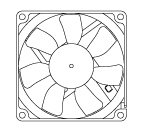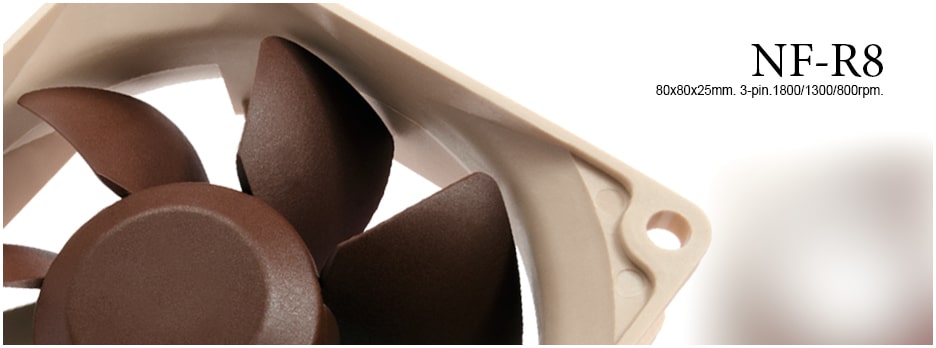NF-R8
Sound-optimised blade geometry and profile: The NF-R8 is the first fan employing a novel 80mm rotor which was developed by the Austrian Institute for Heat-Transmission and Fan Technology (Österreichisches Institut für Wärmeübertragung und Ventilatorentechnik, ÖIWV). Thanks to the special optimisation of the blade geometry towards ultra low noise application, the NF-R8 is up to 10% more quiet than current high-end fans at the same flow rate. 
Self-stabilising oil-pressure bearing (SSO bearing): The NF-R8 series are equipped with a magnetically centred, self lubricating oil-pressure bearing that provides a new level of quietness and long-term stability. 


- Ultra-Low-Noise Adaptor (U.L.N.A.)
- Low-Noise Adaptor (L.N.A.)
- 4 Vibration Compensators
- 3:4-Pin Adaptor
- 4 Fan Screws

Your opinion matters!
We are excited to invite you to participate in our short website survey. It will only take 5 minutes of your time!














